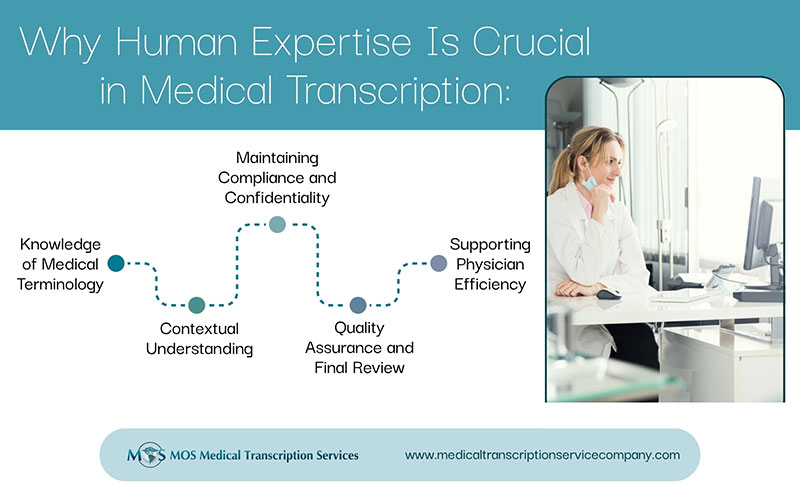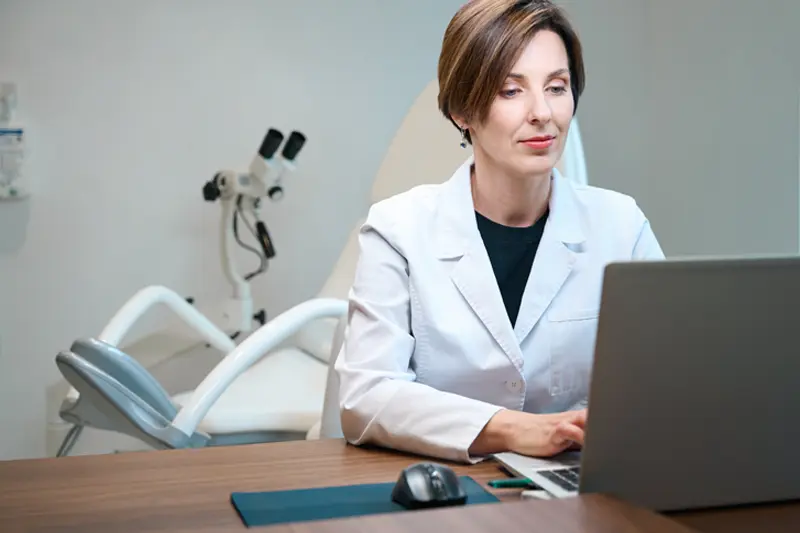Medical transcription outsourcing helps physicians to precisely document the office visit and other types of encounters, and focus on diagnosis and treatment. Early diagnosis and prompt treatment are key for the patient as it promotes quick return to health. The costs of a wrong diagnosis can be devastating. This is what patients risk when they search online and self-diagnose. However, according to a recent TIME magazine report, physicians have come to accept that patients will do some online research on their medical symptoms.

The number of people who turn to Dr. Google for medical advice has increased over the years. A 2012 Pew Research survey revealed that six-in-ten (59%) Americans used the Internet to look for health information. It was found that people went online most frequently to look up information about a specific disease or medical problem (63 percent) or a particular medical treatment or procedure (47 percent).
Don’t be Led Astray
Physicians tellpatients who search online for health information not to be led astray:
- Not all online resources are good: TIME cites Dr. Michael Munger, president of the American Academy of Family Physicians as saying that information does improves overall collaboration between patients and their physicians and care teams. However, patients should know that some of the resources available on the Internet are good, but others cannot be relied upon.
- Digital diagnosing tools cannot always provide the correct diagnosis: The most commonly searched symptoms in the WebMD’s checker include bloating, cough, diarrhea, dizziness, fatigue, nausea and headache, according to the website’s vice president of mobile products Ben Greenberg. A 2015 Harvard Medical School study that tested leading symptom checkers found that only half the time did digital diagnosing tools provide the correct diagnosis as one of the top three possibilities based on the symptoms people searched.
- People should be cautious about interpreting results provided by digital tools: The Harvard Medical School team noted that symptom checkers matched the physicians’ advice 57% of the time when it came to advice on whether people should see a doctor or go to the emergency room immediately because their complaints were serious, or if they could wait to do so. But the researchers say that while people can use symptom checkers to get more information about their health, they should be cautious in terms of interpreting the results.
- Online health research breeds cyberchondria: According to Microsoft Research, cyberchondria is defined as “the unfounded escalation of concerns about common symptomatology, based on the review of search results and literature on the web.” Sites providing inaccurate information often link to other sites that reinforce these misconceptions and rumors with disastrous consequences. Cyberchondriacs spend sleepless nights worrying about dangerous diseases they’ve learned about through web searches, according to a Mashable report. Patients who self-diagnose using the Internet should know that many diseases have common signs and symptoms. Physicians rely on these symptoms as well as their clinical expertise to make a correct diagnosis.
Online Health Research can be Useful
However, when practiced responsibly, online self-diagnosis and medical research can provide many benefits for both patients and physicians. Research published in the Journal of Participatory Medicine found that while self-diagnosissimultaneously threatens medical authority, it can enhance the potential for self-care, compliance and convenience.Here’s what patients should know about using online health research tools:
- Symptom checking tools are improving: The TIME report notes that symptom checkers have improved over time and provide results only if users provide more specific information. The symptom checker of the American Academy of Family Physicians requires people to answer additional questions on their general symptoms to come up with the most likely reason for their health complaints. WebMD’s new symptom checker version relies on the same algorithm that doctors use in evaluating patient symptoms come up with a diagnosis. The site uses age and gender information order to further triage medical conditions that may be the likely cause of the symptoms. It provides matches only when patients type in specific symptoms and not general ones such as fever or headache.
- Symptom checkers can reduce the burden of overtreatment: These first-line triage systems help people determine if their concern is really serious and needs immediate care or whether they can wait a few days. This can help reduce the burden of overtreatment in the U.S. health system and reduce overcrowding in hospitals and physicians’ offices, while prompting those who need care to seek it right away.
- Improves the consultation experience: Patients who use a reliable symptom checker before the office visit would have a better idea about their condition. Having a list of potential conditionsand directed questions ready when they come in for the consultation would improve communication. This can make for a more efficient consultation and also save valuable time for the physician.
Online Symptom Checkers cannot replace the Office Visit
Patients should know that symptom checkers and other tools are not meant to provide medical advice and are not a substitute for the physical office visit.Every individual is different and so are our responses to diseases. Physicians assess medical history, family history, risk factors, etc. as well as symptoms and relevant information and may perform various tests in order to diagnose conditions and provide treatment. Medical transcription outsourcing companies helps providers maintain accurate electronic health records, reduce risk of errors, and improve care coordination.
The bottom line: Online self-diagnosis and medical research can be successful only when practiced responsibly. Patients should be extremely cautious when consulting the web. While there is good information available online, there is also a lot of false and misleading content. Physicians need to educate patients on researching online for medical information and advise them to use only reliable websites. Patients should learn to distinguish between trustworthy and unreliable resources. Bringing along information gathered online to the consult and getting it reviewed by the physician can help verify its authenticity. Patients who self-diagnose should be made to understand the difference between the self-diagnosis and the actual diagnosis.


